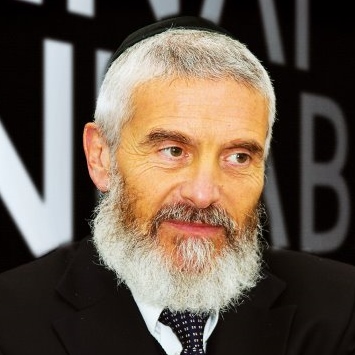
News

The ancient book that answers modern dilemmas
DEVON MOGG
Why has the Torah not simply been relegated to the doldrums of history along with other outdated moral codes and objectionable religious texts like the Code of Hammurabi? Why is it not simply a mere literary curiosity aka The Iliad?
Why does the Torah continue to inspire millions, perhaps billions, and why (if at all) should we consider it relevant to our 21st century lives?
Rabbi Dr Akiva Tatz, who is in South Africa for Sinai Indaba, has a simple and forthright answer.
“The Torah is still relevant because it is a timeless document, given for all time. The principles are contained in the Torah, but not the applications. As time goes by, the same principles apply to different applications.”
This idea finds expression in Tatz’s own field of expertise: medicine. “As time goes by, new treatments, new details, new technologies are discovered, but the principles of medicine remain the same; the human body remains the same, even though it moves through new circumstances. Similarly, when you come across a new situation, a new technology, a new ethical or moral dilemma, though the Torah may not speak about the details, it does contain the principles.”
Applying the Torah is thus a living, dynamic process, as epitomised by the Oral Torah. “The point of the oral tradition is to keep us involved and alive and dynamically defining the Torah. If all the answers were contained in an envelope you could open, or something written down and carved in stone, then we would be irrelevant.”
In other words, applying the Torah requires us to be personally involved, not just blindly follow a dusty book on the shelf. “We are partners in Torah, and in creation itself. The whole beauty of the process is that as new issues arise, we do not have an answer we can unwrap or look up. We apply the principles and methodology that have been passed down from Sinai and come up with the answer ourselves, and thereby become equal partners in the creation of Torah through history.”
The Torah’s applicability comes into particularly sharp relief when it comes to dealing with moral dilemmas. “How do you respond when there are two or more options which appear right. In medical school they teach you the technicalities, the plumbing. But they don’t tell you what’s right and wrong. For that you need Torah.”
Tatz emphasises that while there is always an answer in the Torah, we are not always able to fathom it. “The Talmud itself sometimes comes to a conclusion of teku – basically, we don’t know what to do here. Sometimes we are not on the level to resolve the dilemma, and we have to admit that we don’t know. However, it is very important to know that even though we don’t have the right answer, we still know what to do – there are specific Torah principles we apply in handling situations of doubt.”
A classic moral dilemma many are grappling with today is whether eating meat is morally justified, given the cruel way in which animals are industrially farmed.
“I’m not sure there is a moral justification,” says Tatz. “First of all, there is an explicit Torah prohibition against causing harm to an animal. There is no question about that. It’s also important to bear in mind that in the original perfect world that G-d created [before the flood], people were not allowed to kill animals and eat them. It’s a brutal thing to do.”
So how can we eat meat at all?
Tatz calls it a “concession to the fallen nature of the world”.
“It is very much a non-ideal state,” he says. “In the Messianic age, we will no longer eat meat. Some vegetarians sense this spiritual truth. You need to be a wise person to eat meat. There is a Chassidic idea that when you eat the meat, you elevate it. In turn, the animal you are eating elevates the plant world that it consumed, and the plant world elevates the inanimate world, and so you’re elevating the whole system, and incorporating it into your being. But that’s only if you’re eating meat and using the energy you get from it to do good in the world. If you eat a chicken, then do something bad, you just destroyed the chicken.”
- Catch Rabbi Dr Tatz at Sinai Indaba (2-3 March) at the Sandton Convention Centre, where he will be talking about moral dilemmas in everyday life, and the new genetics.




